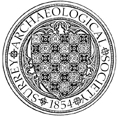SIHG Talk: "The Match Girls Strike and How It Changed British History" (ZOOM) by Michael Astrop
More details to follow

A Lecture
More details to follow
Details to follow
In 1939 Tom and Angela Rolt set out to explore the canals of England in the narrow boat ‘Cressy’. The account of their cruise was a book called “Narrow Boat” and this inspired the national movement to preserve and cherish our inland waterways. Eighty years later Alastair Clark set out on a bike to follow the part of their voyage which followed the Trent and Mersey canal.
NOTE: this talk is on a Tuesday, due to speaker's unavailability most Thursdays
And now for something completely different - some maritime industrial archaeology.
Today's speaker Geoff has been a railway enthusiast since his schooldays. At 15, he left school and started his career as an engine cleaner, working in the boilersmith’s shop and eventually becoming a top-link fireman based at Guildford Motive Power Depot. This gave him a privileged opportunity to work with a diverse group of drivers and locomotives until the final day of steam on the Southern Region, Sunday 9th July 1967.
In 1846, a patent was awarded to a new type of corn-mill - it triggered a series of court cases which ran for more than 20 years. This talk tells the story of the invention and how the court cases provide examples of what makes an invention patentable in the UK today.
The work women of the Land Army in World War 2 is well known. This talk tells the story of the less well-known women who volunteered in the 1940s to keep traffic flowing on Britain’s canals. However they may have referred to themselves, they were far form “idle women”.
This talk uncovers a lost industry of the Adur valley – the making of salt. Salt is something we probably all take for granted, sprinkling it on our roast potatoes or adding it to our salads. Or even, perhaps, trying to eat less of it nowadays.
The First World War inspired Heath Robinson to dream up a series of increasingly outlandish and bizarre military inventions with which the opposing armies would try to outwit each other. From the kaiser’s campaigning car or a suggestion for an armoured bayonet curler, to post-war ‘unbullying’ of beef, his cartoons are a fantastically absurd take on wartime technology and home-front life.
The AGM of the Medieval Studies Forum will be followed by a talk Professor Ian Freestone (UCL Institute of Archaeology) on Medieval Glass.